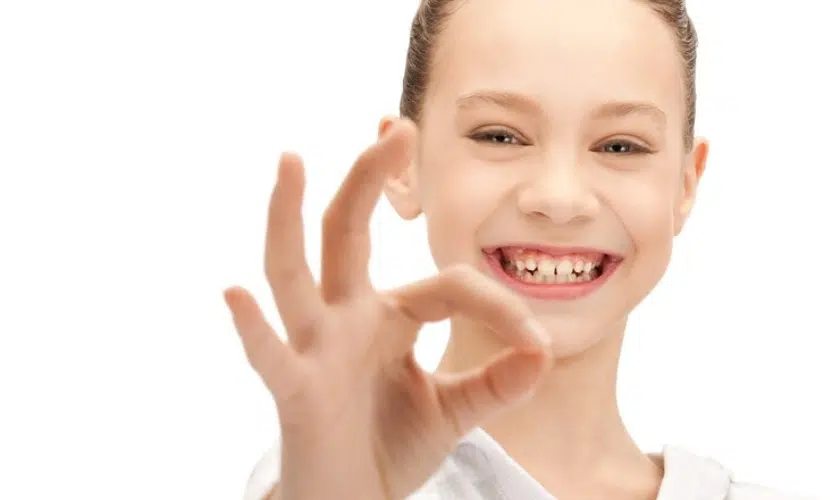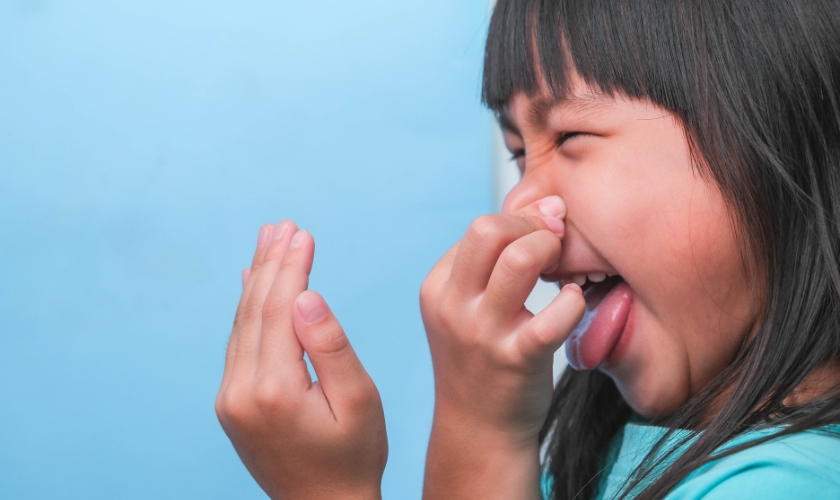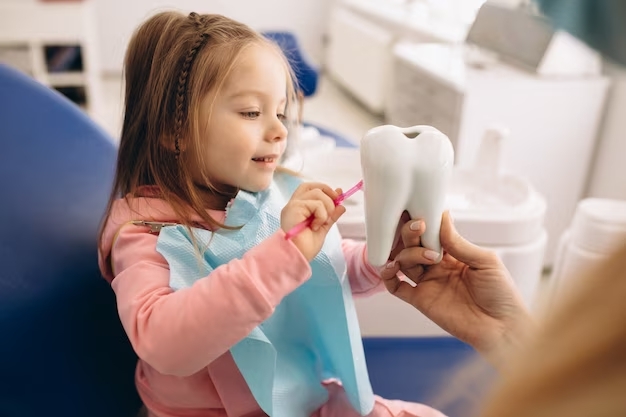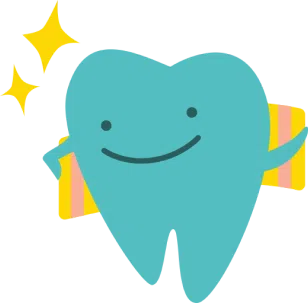

From Baby Teeth to Permanent Teeth: A Comprehensive Guide on Maintaining Good Oral Health in Kids
Are you worried about your child’s dental health? As a parent, it’s natural to want the best for our kids, especially when it comes to their oral hygiene. From the moment those tiny baby teeth start popping up until they transition to permanent teeth, there are plenty of milestones and challenges along the way. But don’t worry! With some easy-to-follow tips and tricks, you can help your little ones maintain good oral health habits that will last them a lifetime. In this comprehensive guide, we’ll cover everything from brushing techniques to dietary choices – so let’s get started on creating healthy smiles for your family!
Oral health is important for kids of all ages, from babies to teens. Proper oral care can help prevent cavities and gum disease, and also promote overall good health.
It’s important to start teaching kids about oral hygiene early on. This can help them develop good habits that will last a lifetime. Here are some tips for maintaining good oral health in kids:
-Encourage kids to brush their teeth at least twice a day with fluoride toothpaste.
-Make sure they floss daily.
-Help them avoid sugary drinks and snacks that can cause cavities.
-Take them to the dentist regularly for checkups and cleanings.
Types of Teeth: Baby and Permanent
There are two types of teeth in humans: baby teeth and permanent teeth. Baby teeth, also called deciduous teeth, are the first set of teeth that erupt through the gums. These teeth typically begin to erupt around 6 months of age and are all present by age 3. Permanent teeth, also called adult teeth, start to come in around age 6. By age 21, all 32 permanent teeth should be present.
Good oral health is important for both baby teeth and permanent teeth. For baby teeth, it is important to prevent cavities so that permanent teeth can come in properly. For permanent teeth, it is important to maintain good oral health so that they last a lifetime.
There are a few things that you can do to maintain good oral health for both baby teeth and permanent teeth:
-Brush your child’s teeth twice a day with fluoride toothpaste.
-Clean between your child’s teeth daily with floss or an interdental brush.
-Limit sugary snacks and drinks.
-Make sure your child sees a dentist regularly for checkups and cleanings.
What Causes Cavities?
Most cavities are caused by plaque, a sticky film of food and bacteria that forms on teeth. When plaque is not removed, it can harden into tartar, which is even more difficult to remove. Plaque and tartar can cause the enamel on teeth to break down, leading to cavities.
There are other factors that can contribute to cavities as well. For example, dry mouth can lead to an increase in cavities because there is less saliva present to wash away food and bacteria. Poor dental hygiene habits can also lead to cavities, as well as eating sugary or acidic foods and drinks.

Home Care Tips for Kids
Good oral health starts at home. Here are some tips to help keep your child’s teeth and gums healthy:
• Help your child brush their teeth. For children under the age of six, you will need to do the brushing for them. Children over six should be able to do it themselves but you will need to help them ensure they are doing a good job.
• Make sure your child is using fluoride toothpaste. Fluoride helps protect against cavities.
• Encourage your child to floss daily. This is important for removing plaque and bacteria from between the teeth where the toothbrush cannot reach.
• Schedule regular dental check-ups and cleanings for your child. This is important in order to catch any problems early and prevent serious issues from developing.
Visiting the Dentist: How Often and What to Expect
It’s important to take your child to the dentist as soon as their first tooth comes in, and then every six months after that. During these visits, the dentist will check for any problems with your child’s teeth and gums and will clean their teeth. They may also recommend fluoride treatments to help prevent cavities. You can expect the dentist to talk to you about your child’s diet and oral hygiene habits, and give you tips on how to care for their teeth at home.
Brushing Techniques for Kids
Assuming the blog article is discussing oral health in general:
It’s never too early to start teaching your kids about the importance of taking care of their teeth. As your child’s first teeth start to come in, you can begin using a soft-bristled toothbrush to help clean them. When your child’s permanent teeth start to come in, you’ll need to continue using a soft-bristled brush, but you can also use a slightly larger one if you’d like. Be sure to brush gently, using circular motions, and avoid scrubbing back and forth, which can damage the enamel on your child’s teeth. You should also make sure to brush for at least two minutes each time.
If you’re not sure if you’re brushing correctly, ask your dentist or dental hygienist for a demonstration. They can also show you how to floss your child’s teeth properly. Once your child is old enough (usually around age eight), they should be able to brush and floss their own teeth. Until then, it’s important that you continue to help them with their oral hygiene routine.
Foods to Avoid for Good Dental Hygiene
Tooth decay is one of the most common chronic diseases in children. In fact, according to the Centers for Disease Control and Prevention (CDC), nearly one in every five children aged 5 to 11 years has at least one untreated decayed tooth.
One of the best ways to prevent tooth decay is by practicing good dental hygiene. This means brushing teeth twice a day with fluoride toothpaste, flossing daily, and eating a balanced diet. It’s also important to avoid sugary and acidic foods that can damage teeth.
Here are some specific foods to avoid for good dental hygiene:
Sugary drinks: soda, sports drinks, energy drinks, and fruit juices are all high in sugar. When sugar interacts with the bacteria in your mouth, it produces acid that can eat away at your enamel. Try to limit sugary drinks and brush your teeth immediately after consuming them.
Candy: hard candy, gummies, chocolate bars, etc., are all loaded with sugar. Not only does this increase the risk of tooth decay, but it can also cause cavities.
Bread: white bread isn’t necessarily sugary, it is full of carbohydrates that turn into sugar when they interact with the bacteria in your mouth. This can lead to tooth decay and cavities.
Potato chips: like bread, potato chips are full of carbohydrates that turn into sugar when they come into contact
Conclusion
Our guide on maintaining good oral health in kids has hopefully shed some light on the importance of tooth care for kids. Starting from infancy to when they get their permanent teeth, it is important to ensure that your child’s dental hygiene habits are well-developed so that they can enjoy a lifetime of healthy smiles. Make sure to pick out the right toothbrush and toothpaste for them, take them regularly for checkups and cleanings, and reward them with treats when they do a great job brushing or flossing! With these tips in mind, you should have no problem teaching your kid proper dental hygiene practices.
The first permanent teeth usually erupt around age 6, but it can be earlier or later. All of the baby teeth should be gone by age 12 or 13.
You can help your child take care of their new teeth by teaching them how to brush and floss properly. You should also take them to the dentist for regular checkups and cleanings.







